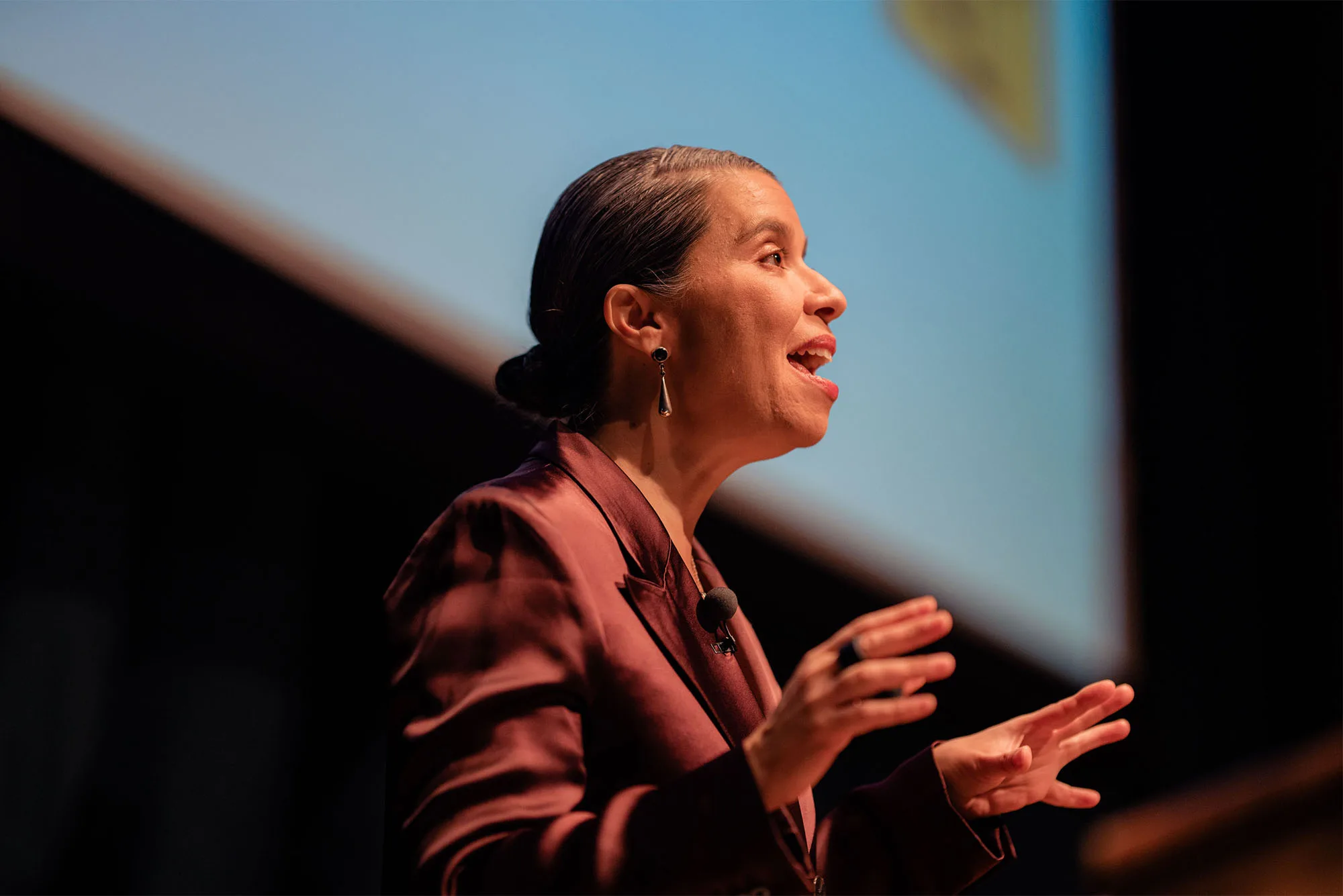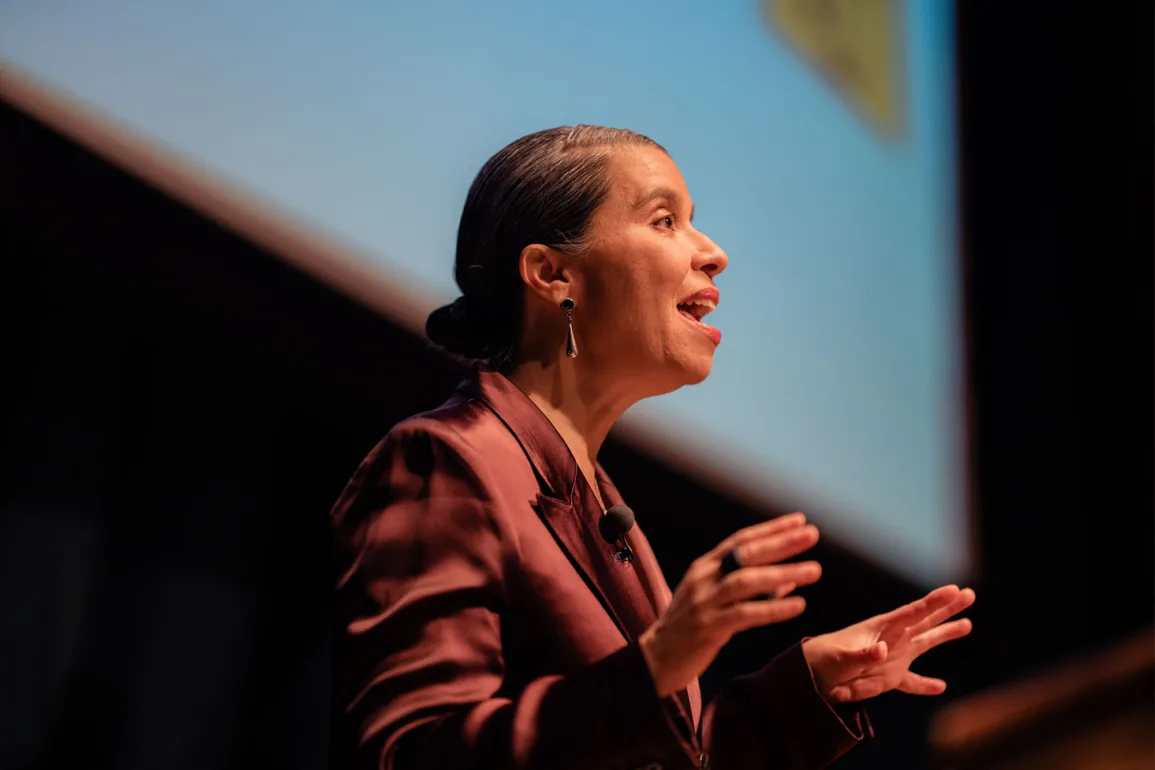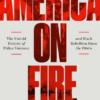To Boston University Law Professor Jasmine Gonzales Rose, CRT is not a divisive framework—it’s a unifying concept. She expanded upon the roots of, and challenges to, critical race theory, and her relationship to it, during the annual University Lecture November 29.
University Lecture
In her University Lecture, the BU professor shared her experience growing up and how it shaped her understanding of the much-debated framework
In some circles, critical race theory, or CRT, is a four-letter word. The legal framework—which posits that racist laws, policies, and regulations have been woven into social institutions in the United States—has been distorted by some politicians and pundits who use it as a bludgeon against any curriculum, book, or law that gives even a passing glance at racism in this country. If CRT is a door, open to examining the consequences of the nation’s fraught history, there are many who seek to slam it shut. Forever.
But to Boston University School of Law Professor Jasmine Gonzales Rose, CRT is not a divisive framework, it’s actually a unifying concept. Rose—who is also LAW’s associate dean for equity, justice, and engagement—expanded upon the roots of and challenges to critical race theory, as well as her relationship to it, during the annual University Lecture November 29.
CRT, Rose said to a nearly full house at the Tsai Performance Center, is about love.
“What I learned from critical race theory is this idea of seeing our humanity, our collective humanity, in a time of geopolitical crisis,” she said. “People are suffering in our communities, they’re suffering in our classrooms, and it’s about tending to that suffering. Looking for the cause of that suffering and ways to deconstruct the subordination, how can we reflect, to do better? How can we repeat this [process] over and over?”
Rose’s University Lecture, titled Unifying Concepts: Critical Race Theory, Academic Freedom of Speech, and Democracy was in turns thought-provoking, funny, and educational. Kenneth Freeman, BU president ad interim, described it as “inspiring, informative, and questioning,” in his remarks after the lecture.
It also represents the latest in a storied tradition at the University: the lecture series was established in 1950 and honors members of the BU faculty engaged in outstanding research. Faculty tapped to deliver the lecture over the years have represented the full spectrum of disciplines at BU and share a common commitment to excellence in scholarly inquiry and discovery.
“An expression I’ve never understood is when people say they’re ‘honored and humbled,’ because I would think, you’re ‘honored, you’re not humbled!’ But let me tell you, I understand that tonight,” Rose said, thanking the many students, colleagues, and mentors she’s learned from over the course of her career.
“[As] someone who experienced housing insecurity, food insecurity, who dropped out of the seventh grade, how am I here today? Well, my journey is untraditional,” she said, “but it’s also what really brought me to critical race theory. I questioned injustice around me, and I was given an opportunity to have a language to understand these experiences. This language was through CRT.”

Throughout her lecture, she explored the myriad ways race and racism sneak into the legal system—whether through discrimination against potential jurors who are bilingual or speak English with an accent, or through the legacy of 18th- and 19th-century “race-based witness competency rules” that prohibited “people of color from testifying” against a white person, or in some cases, altogether.
“One of the things I’ve been really interested in during my career is asking: is there a dual race evidentiary system? Did that continue in some way today? Do people of color carry an unfair evidentiary burden? In my scholarship, I argue in some ways, they do,” Rose said.
One way this added burden plays out is in proving even the existence of racism, she said.
“An example would be Black and brown flight from police officers. So it can be argued, ‘Oh, well, the individual ran because they saw a police officer, and they were trying to avoid them. And therefore that’s evidence of a consciousness of guilt. And if they had a consciousness of guilt, then they were more likely to be guilty,’” Rose offered. “Well, what about the experience of a racialized reality of people of color, who may be avoiding police or law enforcement interaction because they fear police brutality, racial profiling, and so forth?”
A sharp lawyer might overcome this particular challenge of illuminating for a jury [who may not be aware of] the many ways systemic racism infiltrates individual lives by calling an expert witness, Rose said—someone who can explain the phenomenon with data and experience. She and her colleagues are in the midst of research now to consider how an expert can bring evidence of a racialized reality into a courtroom. They’ve surveyed more than 700 criminal defense attorneys who’ve provided “rich feedback,” she said, about how necessary this sort of expertise is.
Toward the end of her lecture, Rose invited the audience to join her in a law school class—a crash course in race and racism. She walked through the different definitions of race, ethnicity, and national origin before arriving at the far thornier definition of racism—a definition that can vary in the law, depending upon an individual’s perspective. Rose described three of the most common perspectives—traditionalist, reformist, and criticalist. Each one of them colors a person’s conception of what racism is, as well as the steps required to mitigate it. She showed how, even among Supreme Court justices, these various perspectives shape decisions.
Understanding these divergent perspectives can help scholars, lawyers, and regular people think critically about race and racism, Rose said, which is an essential tool in a functioning democracy. “It helps us to talk about difference and helps us to think about counterarguments,” she said. “What I’ve learned from critical race theory and from working in anti-racist movements is that this is really about all. This is really about love, it’s really about freedom. It’s about democracy.”



